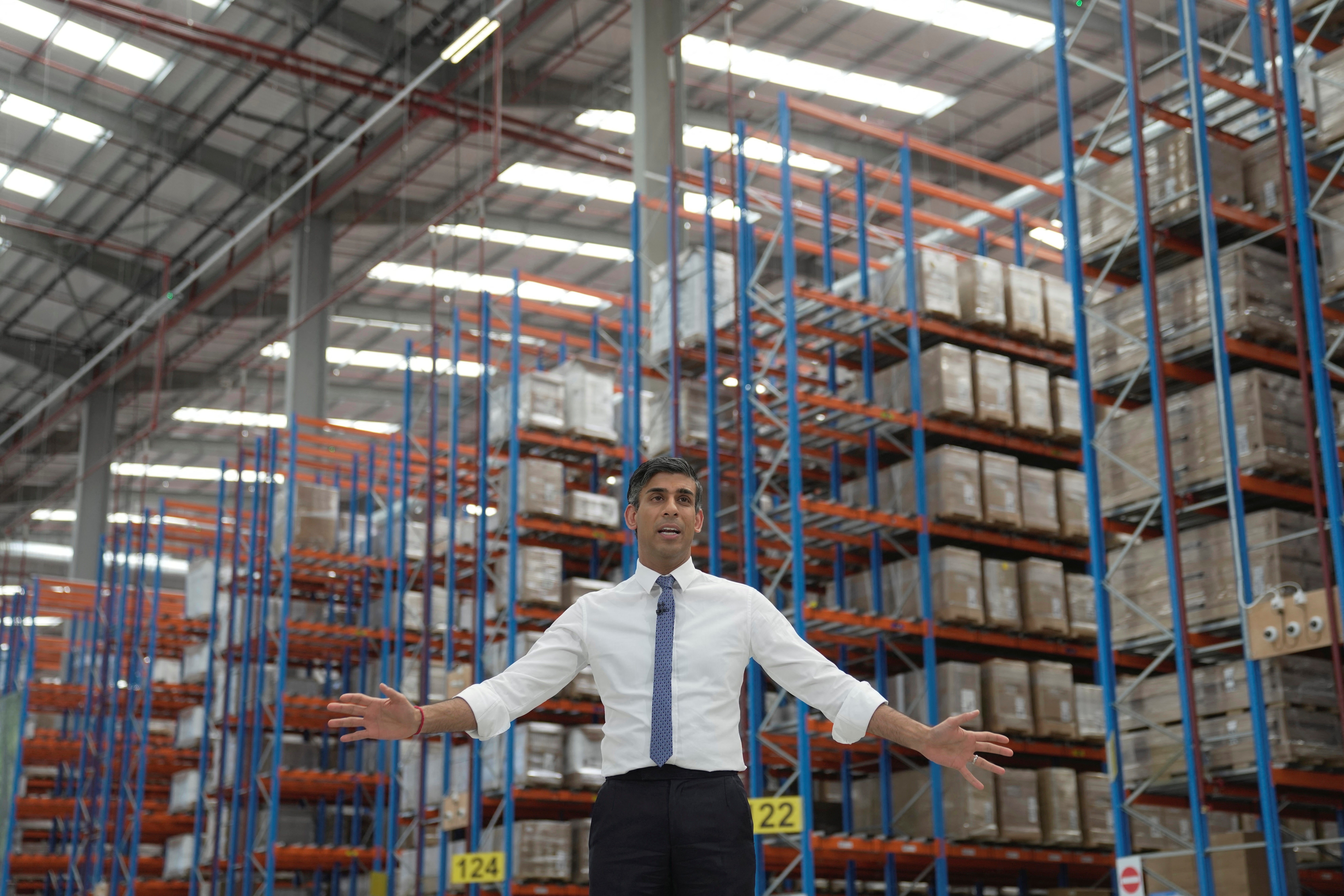Until this week, Rishi Sunak just needed to get lucky. Now he needs a miracle
The inflation gloom on Wednesday, which prompted the interest rate rise on Thursday, marks a turning point on the road to the election, writes John Rentoul


The simplest promises can be deceptive. Of the original five promises on Labour’s pledge card in 1997, no one paid much attention to the second. This was an undertaking to “halve the time from arrest to sentencing” for young offenders, which seemed straightforward enough.
Yet it was the one that proved hardest to fulfil. By the time of the subsequent election in 2001, the target still hadn’t been reached, although it was met the following year, and Labour claimed that the promise assumed that parliament would run for a full five years.
Luckily for Tony Blair – although political nous may have been as important as luck – nobody cared. I think I was the only journalist who tracked the Home Office figures. The point of the promise was to send a message about New Labour being tough on crime, a reputation that was securely nailed down during Blair’s first term.
Since then, every two-bit prime minister and leader of the opposition has copied the five-pledge format. Rishi Sunak did it at the start of this year, and – just as with New Labour – it was the simplest promise that came back to bite him. Everyone thought the pledge to “stop the boats” would be undeliverable, but it is the promise to halve inflation by the end of this year that has turned out to be the tough one.
At the time he spoke, inflation was 10.7 per cent (the figure for November 2022 was the latest then), and everyone fell over themselves to point out that his “promise” was a mere description of what was expected to happen – leaving a good margin for error.
That margin has now disappeared. The figure for inflation published on Wednesday, 8.7 per cent, was unchanged from the month before, when it was expected to be lower. Ever since Sunak made his pledge in January, successive inflation figures have failed to fall as much as the markets expected, and the measure of core inflation, which excludes the volatile prices of such things as energy and food, has continued to rise. On Wednesday the Office for National Statistics reported that it had gone up to 7.1 per cent in May, up from 6.8 per cent in April.
No wonder Sunak seemed a little subdued at the start of Keir Starmer’s questions to him on Wednesday. He had realised that the target of halving inflation by the end of the year is now as likely to be missed as hit. And he realised that the Bank of England would respond to higher-than-expected inflation by raising interest rates by more than expected on Thursday.
By the time he arrived at his “PM Connect” event at an Ikea factory in Kent just after the Bank’s announcement, he must have been tempted to say: “Well, I was wrong.” He could have explained that nearly everyone else had been wrong too. He could have said that he had, as chancellor last year, been ahead of the pack in warning of the dangers of inflation, and that if he had been running the Bank of England he would have acted sooner to try to suppress it.
Instead he started by saying he realised how worried everyone must be, but that “everything is going to be OK”, which struck a clanging note of false reassurance.
He knows, because he understands economics, that there is little the government can or should do to soften the blow of higher mortgage payments for people coming to the end of fixed-rate deals. Yet Jeremy Hunt, the chancellor, still had to go through the charade of meeting the banks and announcing that they had agreed to give people struggling with their repayments 12 months’ grace, which is their standard policy anyway.
That’s politics. The government has to show that it feels people’s pain, while knowing that the pain is the point, if it is to restrain spending and to slow price increases. Just as it is opposition politics for Rachel Reeves, the shadow chancellor, to accuse the government of a “weak response” while claiming that “Labour’s five-point plan” (which is more or less the same as the government’s) “offers practical help now”.
Sunak, Hunt, Starmer and Reeves all know that the pain of higher mortgage payments is likely to be long and drawn out until the election and beyond, affecting more and more thousands of people as deals signed in the bygone age of ultra-low interest rates expire.
Labour doesn’t have any magic answers – and Reeves is well aware what happened to Liz Truss and Kwasi Kwarteng, the last people who thought they could defy the orthodoxy better known as “reality”.
But the economic and electoral cycles have aligned in Labour’s favour. Until the election, things can only get worse. Afterwards, things can only get better. We have been here before.
Join our commenting forum
Join thought-provoking conversations, follow other Independent readers and see their replies
Comments
Bookmark popover
Removed from bookmarks